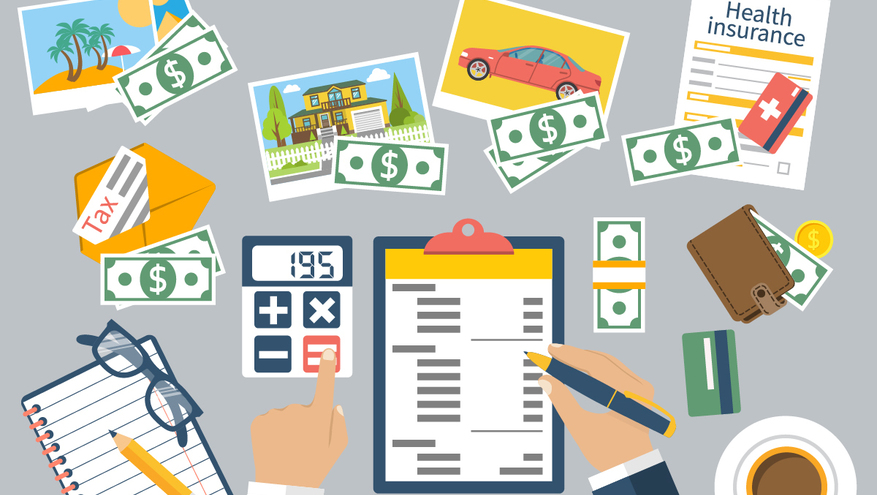April is Financial Literacy Month, and a perfect time to talk about the importance of regularly putting away a little money for an emergency fund to cover life’s hurdles when they come along and for your retirement.
The recent partial federal government shutdown, which put 800,000 government employees temporarily out of work, made something very clear about American’s financial behavior. According to a Career Builder survey:
78 percent of U.S. workers live paycheck to paycheck to make ends meet
Nearly one in 10 workers making $100,000+ live paycheck to paycheck
More than 1 in 4 workers do not set aside any savings each month
Nearly 3 in 4 workers say they are in debt today - more than half think they will always be
More than half of minimum wage workers say they have to work more than one job to make ends meet
This non-savings trend includes people of all generations. Not only are young families struggling to save, Northwestern Mutual recently reported that Americans with retirement savings have an average of only $84,821 saved, which is well under what is needed.
Living paycheck-to-paycheck with no or little savings not only affects those individuals, but society as a whole, as the financial burden of caring for impoverished populations falls on state and federal government and local charities (to which we all contribute).
There are various reasons why people don’t or can’t seem to save money on a regular basis: workers’ salaries aren’t keeping up with the cost of living or those who do make a good income are using their discretionary income to fulfill short-term wants and needs. Sadly, those who don’t have a little rainy-day money are skipping medical treatments and turning to paycheck lenders. Neither are good practices.
No matter your financial situation, it’s always smart to adopt a few basic strategies for financial wellness. Here are some for you to consider:
Live within your means by creating a budget and sticking to it. Bank of Utah’s customers have access to online budgeting ledgers and other helps and there are free budgeting apps available online that make budgeting easy.
Have a portion of your paycheck automatically go directly to a savings account. Even a small portion each payday adds up.
If you want to go on a vacation or make a large purchase, don’t go into debt, create a special savings account just for that and again automatically dedicate a portion of your paycheck to it each month.
Take advantage of your company’s contributed 401K, even if you don’t plan to stay there a long time. Don’t give away this free money, no matter how small it may be. You can likely take it with you to your next job.
Be a DIY expert. Avoid expensive coffees, take-out food, entertainment and “retail therapy.” Allow yourself these as treats but eat at home and look for low-cost entertainment options as the norm. Shop online discount and used merchandise sites, consignment and outlet stores for fun bargains.
Ask a financial adviser to help you with budgeting and saving. Bank of Utah for example has four different kinds of checking accounts and a variety of savings accounts, and they are happy to make recommendations based on your goals.
Click here to download a printable budget worksheet to help you manage your money.
April is the month known for rainy days, so why not start today by creating a rainy-day savings plan at Bank of Utah. Stop by your local branch or call 801-409-5000 to talk to a financial advisor about the best approach for you.




